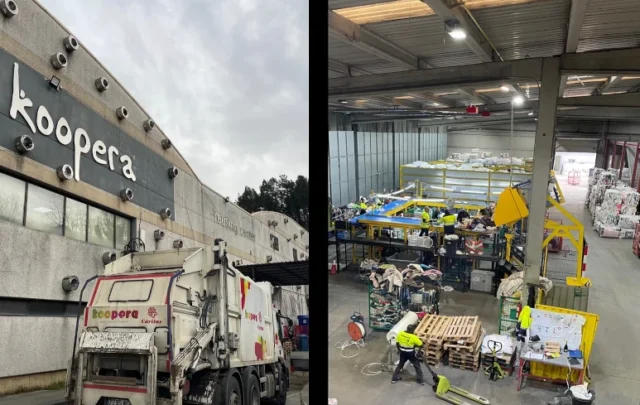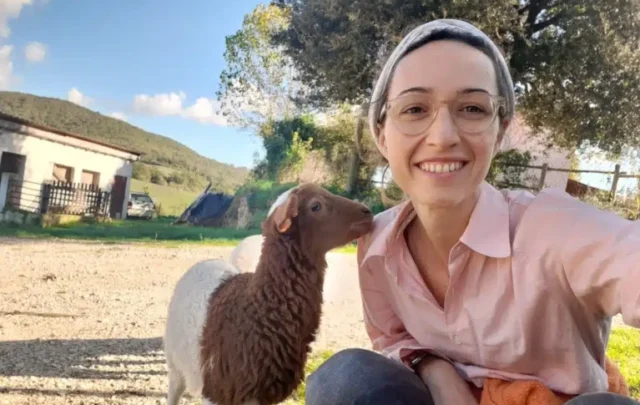
A couple of months ago, we had a lovely WWOOFer (Willing Workers on Organic Farms) come to work with us, Erin. She was an experienced grower based outside of New York City in the Hudson River Valley. It’s an area that is a hotbed for sustainable agriculture, so it isn’t surprising that we knew a few of the same people. The thing is, though, it wasn’t just a few of the same people. It was a lot of the same people and the cross-overs bordered on the uncanny. I mentioned SFT was doing a profile on John Angostinho and Fatstock Farm; he was a good friend of hers and they had apprenticed together. A few days later, I asked her if she might know Nena Johnson, who was writing the Fatstock Farm profile – they had plans to meet up in London after she left us. It started to feel a little weird.
We’re a small farm in West Wales, and that Erin had ended up with us in our remote little corner of the world, is in many ways pure coincidence. So how come we shared so many connections? I was left wondering if the food movement is just too small? Do we all only have 2 or 3 degrees of separation instead of 6? And if that’s the case, what can we do about it, because although it’s nice to be cozy and connected to people you know that share your views, it’s not very useful if you’re trying to grow a movement. Movements are big, and even if you believe that small is beautiful, in this case, it’s counter-productive.
The sustainable food movement always feels really big, because it’s anchored to big ideas and important beliefs, and crosses a wide swathe of issues that impact our society – from healthy eating, to how we feed ourselves, to climate change and damage to our environment. How we produce our food, and the choices that we make about eating, is embedded in all of these issues. But somehow, the criticality of these issues isn’t yet generating significant change in our individual behaviours and choices, nor those of our governing bodies. This has got to change. Our conversations have to become bigger and wider and louder, letting more of us hear these discussions and inviting more of us into the conversation.
So where do we start? I think one of the most important first steps, is to start with friends and family. For one, they’ll listen to you, but two, they’ll argue with you and because they love you, they won’t be afraid to tell you what they think.
Here’s how it played out in my family. My bug bear is factory farmed ‘cheap’ meat. I was a vegetarian for 15 years and I stopped eating meat because, at that time, it seemed easier than trying to source humanely-raised, grass-fed meat in the US. When I started to eat meat again, I made I sure I knew where my meat came from and how it was raised. If I ate out, I ate vegetarian and this put me in the awkward position of having to say, ‘I’m not a vegetarian, but I don’t eat meat unless I know how it was raised.’ This made me feel uncomfortable on more than one occasion and never more than when I was with my family.
I come from a large family which is now very extended as we all married and had children. We don’t get together as a group often because the geographic spread of where we live is significant, but at least once a year we spend a week or two at what is still ‘home’. When meat was on the table, no one ever told me where the meat was from, and for a long time I didn’t ask, I just made an alternative dish for myself. I wasn’t comfortable being difficult about it yet, though I longed to give them all a good talking to about what they were consuming. I wanted my choice to speak for me. It didn’t.
Last year, we went camping and a barbeque was planned. ‘I bought organic meat,’ my brother said. I thanked him, assuming he had bought organic meat for everyone. He hadn’t, he’d bought organic meat for me – which was lovely and thoughtful, but infuriating. I realised he just didn’t get it. My choice wasn’t saying anything to him about why I wasn’t eating cheap meat, nor that I thought that he shouldn’t be eating it either.
So I asked him why he didn’t buy organic meat for everyone. ‘It’s too expensive,’ he said.
Then, I had to start to talk – and try not to lecture or preach – but to start a conversation with him and my other siblings about what I thought, why I thought it and why I thought it was important not just to eat better meat, but to eat locally produced, chemical free food, and to farm in ways that deliver benefits rather than negative consequences. It opened a door, and now our conversations are bigger and we talk about issues to do with our food. We don’t always agree, but we sometimes change our minds and occasionally they tell me not to be so righteous! The last time I was home, my niece asked me about sourcing sustainable food and what to consider. Then she asked her Dad if he’d buy a cow share with her from a local farmer and they talked about the freezer space they’d need to store it. It felt like progress.
Talking food is a big part of what we do on the farm. We take on agricultural interns each summer and we always have people living with us from WWOOF, Helpx and Work-Away programmes. Some are already part of the sustainable food conversation, but others are new to it and you can see them thinking and connecting to their food each night when we sit down at the dinner table and talk. When food is on the table, it’s an obvious topic of conversation and an easy place to start. As well as these easy conversations, though, we need to be having harder ones and we need to do more than just make our own personal choices about food, important as these are. The network of the food movement needs to grow from 2 degrees of separation to 10 and this means talking to a whole lot more people.























